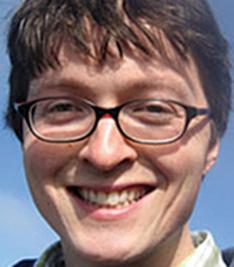

Author Colson Whitehead has been hailed as one of the leading writers of his generation. The winner of a MacArthur “genius” award at 33, Whitehead has taught creative writing at Princeton since 2008. At 44, he has assembled a body of work that embraces both literary and genre fiction, exploring race under the guise of a mystery novel and satirizing the world of marketing with a book about a branding consultant. He made it onto national bestseller lists with Sag Harbor, a look at a group of black teenagers spending a summer in the Hamptons, and Zone One, a post-apocalyptic horror novel about zombies.
Now he has written The Noble Hustle: Poker, Beef Jerky, and Death, a grimly comic account of competing at the World Series of Poker in Las Vegas, or, as Whitehead describes it: “A middle-aged man, already bowing and half broken under his psychic burden, decides to take on the stress of being one of the most unqualified players in the history of the Big Game.” No, Whitehead didn’t win millions, but he spoke about the allure of Vegas with Michael Dickman, a poet and creative writing professor at Princeton. Dickman is the author of the poetry collections Flies and 50 American Plays, written with his twin brother, Matthew Dickman.
MD: You were a casual poker player before competing in the World Series of Poker in 2011, for which you had just six weeks to prepare.
CW: Grantland magazine gave me $10,000 to play in a poker tournament and write about it. I try to do something different with each book, but Sag Harbor, zombies, and poker — that’s a weird streak, even for me.
MD: What did you learn about how people get hooked on gambling?
CW: As a gambler, you know the ace is there. You are sure of it, because the gods are smiling on you. When it doesn’t come, you’re shocked, even though you know what the odds are.
MD: Your poker coach explains what she loves about gambling: “You can be anyone you want to be. I can be extremely aggressive. I can be very brave. I can behave in a way I don’t normally behave.” What about gambling attracted you?
CW: Gambling is dropping out of your normal life. In Las Vegas, there’s something about the scale of it, the feeling that you’re doing something illicit for this brief window before you go back to your humdrum existence.
MD: The character Colson in the book is perpetually thinking about the ways he has failed in life. Where does that come from?
CW: I think of him in terms of the urban neurotic — Woody Allen, David Brenner. I see myself in the book as a persona. Everything in there is true, but the degree of my despair is exaggerated. I feel it’s somebody else, but it’s me.
MD: You must be pretty good at poker now.
CW: The book basically ruined me for poker. My social game is now too social, and my lifestyle doesn’t permit me to play casinos.

